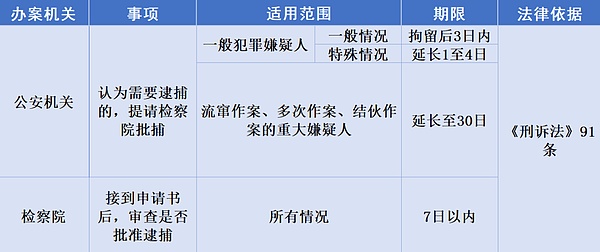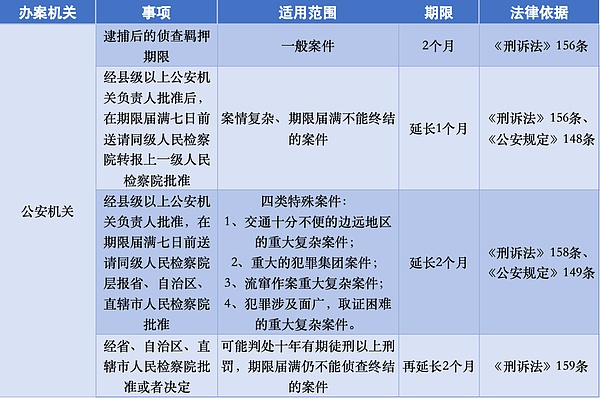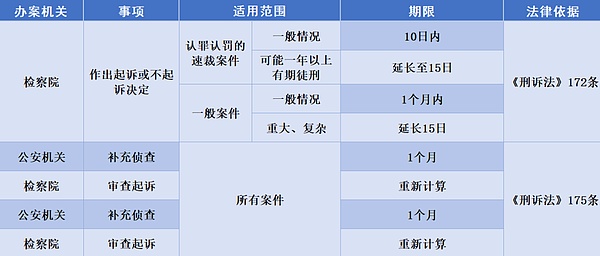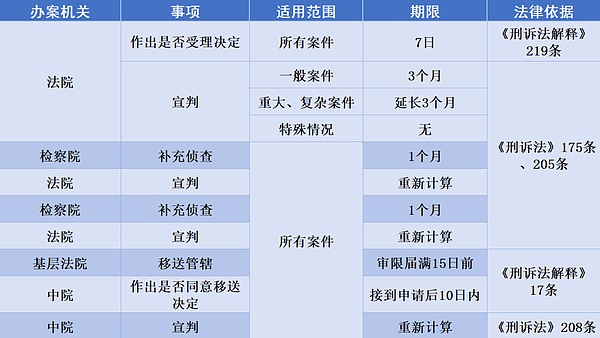Author: Liu Lei Lawyer Team, Beijing Yingke (Shanghai) Law Firm; Source: Lvdong Coin Circle
01 Case Introduction
Wang is a resident of Province A. He sold US dollars to Liu, a resident of Province B, through an overseas company controlled by him, and collected virtual currency and RMB corresponding to Liu in the country, making a profit from the price difference. The public security organ in B believed that Wang was suspected of illegal business operation by buying and selling foreign exchange in disguise, and detained Wang on January 27, 2021. Wang has been detained in the detention center of B area since then. One month later, the public security of B area requested the procuratorate of B area to approve the arrest of Wang. On March 1, 2021, the procuratorate of B area approved the arrest of Wang. On April 25 of the same year, the police in District B transferred the case to the Procuratorate of District B for review and prosecution. Half a year later, the Procuratorate of District B reviewed and prosecuted the case to the Court of District B. Due to the complexity of the case and the large amount of money involved, it was necessary to report to the higher court for designated jurisdiction. Therefore, the Court of District B reported the case to the Intermediate Court of B City, and the case was finally heard in the first instance in mid-August 2023. During the whole process, the criminal suspect Wang has been detained in the detention center for more than two and a half years.

02 Is there any overdue detention in the above case?
It is necessary to discuss in stages whether the detention is overdue. First, it is necessary to clarify which stage of the litigation procedure the case has reached.
(I) Investigation Stage
The first step for a criminal suspect to enter a criminal lawsuit is often to be detained by the public security organ and then detained in a detention center, which is the investigation stage of the case. There is an important time limit in this stage - the arrest approved by the procuratorate. The law has different provisions for the investigation detention period before and after the procuratorate approves the arrest.
Before the procuratorate approves the arrest, we all know that there is a saying of "golden 37 days", that is, the investigation detention period of the public security organ before the procuratorate approves the arrest is up to 30 days, plus the 7-day arrest period of the procuratorate. In other words, if the criminal suspect has not received the arrest notice from the procuratorate after being detained for 37 days, the public security organ must release the criminal suspect, otherwise it will constitute excessive detention. In this case, Wang was taken away and detained by the district police in B on January 27, 2021, and was approved for arrest by the B District Procuratorate on March 1 of the same year. The period did not exceed 37 days, and the procedure was legal.

However, after the procuratorate approved the arrest, the investigation detention period was extended, up to 7 months. In this case, Wang was transferred to the B District Procuratorate for review and prosecution by the B District Public Security on April 25 of the same year. From the time Wang was approved for arrest to the end of the investigation, the maximum investigation detention period of 7 months did not exceed. Therefore, there was no problem of overdue detention in the investigation stage of this case.

(II) Review and prosecution stage
When the investigation of the case is completed, it will be transferred by the public security organ to the People's Procuratorate for review and prosecution, which enters the review and prosecution stage. At this stage, the procuratorate will review all the facts of the case and make a decision to prosecute or not. According to Article 172 of the Criminal Procedure Law, if no additional review is required, the maximum review and prosecution period of the procuratorate is 45 days (1 month + 15 days). For cases that require additional investigation, according to Article 175, Paragraphs 2 and 3 of the Criminal Procedure Law, the procuratorate may return the case to the public security organ for additional investigation, or conduct the investigation on its own. The additional investigation is limited to 2 times and must be completed within 1 month. After the supplementary investigation is completed and transferred to the People's Procuratorate, the People's Procuratorate recalculates the review and prosecution period. Therefore, assuming that two supplementary investigations are required, the longest trial period of the procuratorate in the review and prosecution stage is 6 and a half months (45 days + 1 month + 45 days + 1 month + 45 days). In this case, the B District Procuratorate filed a public prosecution with the B District Court on October 26, 2021. Therefore, from the date the case investigation was completed to the date the procuratorate reviewed and prosecuted, it did not exceed the maximum trial period of 6 and a half months, and the procedure was legal.

(III) Trial stage
After the procuratorate examines and prosecutes, the case enters the trial stage. The case handling period at this stage is divided into two parts: the acceptance period and the trial period. The case handling agency is the people's court. In terms of the acceptance period, after receiving the case files transferred by the procuratorate, the court shall first examine whether it falls under the jurisdiction of the court, whether it is a private prosecution case, whether the defendant is in the case, etc., and make a decision on whether to accept the case within 7 days. In terms of the trial period, according to Article 208 of the Criminal Procedure Law, the trial period for general cases is 3 months; for major and complex cases, it can be extended by 3 months with the approval of the higher court; due to special circumstances, it can also be reported to the Supreme People's Court for approval to extend the period. For cases that require supplementary investigation due to new facts, new evidence, etc., the procuratorate may make suggestions for supplementary investigation, and the people's court may also suggest that the procuratorate conduct supplementary investigation. The period for supplementary investigation is 1 month, and is limited to 2 times. After the supplementary investigation, the trial period of the people's court is recalculated.

Based on the above-mentioned procedural provisions, analyzing this case, firstfrom the perspective of the acceptance period, Wang was prosecuted by the People's Procuratorate of Region B on October 26, 2021, and the People's Court of Region B should complete the review and accept on November 2 of the same year.
Secondly, from the perspective of the trial period, unless the case is reported to the Supreme People's Court, the trial period of District B Court is up to 6 months, that is, the trial period of this case in District B Court expires on May 2, 2022. Due to the complexity of the case, according to Article 17 of the Interpretation of the Criminal Procedure Law, District B Court shall submit a written request for transfer of jurisdiction to the Intermediate People's Court of City B at least 15 days before the expiration of the trial period of the case, that is, before April 17 of the same year, and the Intermediate People's Court shall make a decision on whether to agree to the transfer at the latest on April 27 of the same year. After the Intermediate People's Court decides to agree to the transfer, according to Article 208 of the Criminal Procedure Law, unless the case is reported to the Supreme People's Court and approved, the trial period of the Intermediate People's Court is up to 6 months. That is to say, if the time when the case materials were transferred from the B District Court to the B City Intermediate Court is not included, the Intermediate Court should have expired on October 27, 2022. However, the first trial of this case was not held until August 10, 2023, which is nearly a year in between, which is obviously far beyond the reasonable time for the case materials to be transferred from the B District Court to the B City Intermediate Court. Therefore, there may be problems of extended detention and inappropriate procedures in the trial stage of this case. 03 Team Views (I) Why does the problem of extended detention occur?
Although my country has always held a negative attitude towards extended detention, the problem of extended detention still occurs from time to time in my country's judicial practice. In addition to the explicit extended detention that exceeds the statutory maximum detention period in this case, there is also implicit extended detention in which the case-handling agency uses various reasons to extend the procedures in disguise. So, why does the problem of extended detention still occur in current practice?
First, from the perspective of legislative purpose, the value orientation of the establishment of the detention system in my country's criminal proceedings is more inclined to improve the efficiency of evidence collection, and secondly to prevent the criminal suspect from committing crimes again. Therefore, under the control of this value orientation, the detention period in practice is dependent on the case handling period of the case-handling agency, and the detention time often depends on the time required for the case handling. This is why the above discussion on whether the criminal suspect is detained beyond the legal period is based on the statutory case handling time. If the case is delayed, the suspect may be detained forever, and the final verdict may not be completed within the statutory period.
Secondly, from the perspective of the legal provisions on detention conditions and case handling deadlines, the judgment criteria are relatively diverse. From the perspective of the conditions for arrest in the Criminal Procedure Law, Article 81 of the Criminal Procedure Law stipulates three requirements: "there is evidence to prove the existence of criminal facts", "may be sentenced to imprisonment or above", and "taking bail pending trial is not enough to prevent social danger". Among them, the first two conditions can be met in almost all cases, while the third condition depends on the assessment of the case handling personnel and has a large floating space.
In addition, from the perspective of the procedural provisions on the case handling deadline itself, out of the need to clarify the facts of the case, my country's legislation has reserved a large amount of flexibility for the case handling deadlines for major and complex cases in the investigation, review and prosecution, and trial stages, resulting in the problem of overdue detention of some difficult and complex cases. In addition, since the law also stipulates a series of time periods that are not counted into the case handling period, as well as situations in which the trial period is recalculated, in practice, there are still cases where the case handling authorities use procedural means such as changing compulsory measures, supplementary investigation, and transfer of jurisdiction to continuously extend the case handling period.
(II) Suggestions for Improving the Problem of Extended Detention
Extended detention not only infringes upon the legitimate rights and interests of criminal suspects, but also wastes judicial resources if the case remains unresolved for a long time. "Justice delayed is justice denied", and only by ensuring procedural justice can substantive justice be guaranteed. So, how can we maximize the use of judicial resources and find out the facts of the case on the basis of safeguarding the human rights of criminal suspects?
1. Relief Path for Parties
From the perspective of the parties, suspects are in a weak position in criminal proceedings, and many parties are unaware when their legitimate rights and interests are infringed. According to Article 99 of the Criminal Procedure Law, criminal suspects, defendants, their legal representatives, close relatives or defenders have the right to request the lifting of compulsory measures when the statutory period for compulsory measures taken by the people's court, the people's procuratorate or the public security organ expires. Therefore, if there is indeed a situation of overdue detention, you can raise an objection yourself or entrust your legal representative, close relatives or lawyer to raise an objection, and actively communicate with the case-handling agency to lift the compulsory measures in a timely manner.
According to Article 97 of the Criminal Procedure Law, the people's court, the people's procuratorate and the public security organ shall make a decision within three days after receiving the application; if they do not agree to change the compulsory measures, they shall inform the applicant and explain the reasons for their disagreement. If you are dissatisfied with the above reasons, you can also appeal to the people's procuratorate at the same level.
2. Suggestions on compulsory measures
From the perspective of judicial practice, confession and acceptance of guilt account for the vast majority of criminal cases. Therefore, it is recommended that the case handling agency can conduct a review of the necessity of detention throughout the entire process of the case, and within the statutory case handling period, consider taking other compulsory measures such as bail pending trial and residential surveillance for some criminal suspects who do not pose a great threat to society. In this way, the legitimate rights and interests of criminal suspects can be protected, criminal proceedings can be smoothly promoted, and the problem of excessive detention can be avoided.
 Alex
Alex













